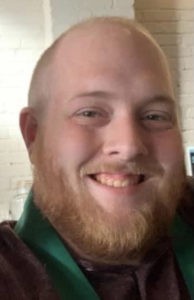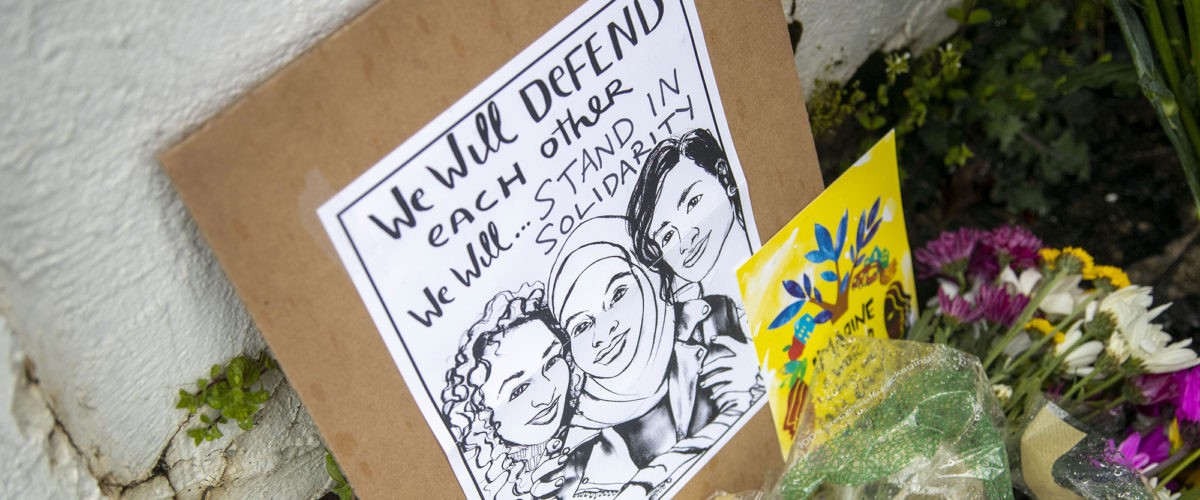On the evening of March 16, Robert Long allegedly shot and killed eight people, seven of whom were women, at three separate massage parlors in the Atlanta metropolitan area. Initial reports say he is a Christian and the son of a pastor.
At the time he was apprehended, he was on his way to Florida, reportedly to murder people who worked in the pornography industry. While reports of possible racist motivations dominated the headlines, which I do not discount, Long provided his own motivation. According to him, he had a “sex addiction” and sought to “eliminate” the women he held responsible for that “temptation.”

Kaleb Graves
This motivation seemed bizarre to some of my peers when they first heard it, but it made perfect sense to me. For years, the Christian “porn addiction” industry has sold men a false narrative. They have entirely reversed Jesus’ call to pluck out your own eye if it causes you to sin. Instead, according to organizations like “Fight the New Drug,” “Covenant Eyes,” or “XXXChurch,” pornography causes addiction just like a drug. They describe the porn addiction just like drug addiction, complete with withdrawal symptoms and a lack of control over one’s choices.
For example, from Fight the New Drug: “Addictive drugs hijack the brain, turning it around and forcing it in a direction it was never meant to go. … Want to guess what else does that? Porn.”
The message is pretty clear. Without outside intervention, men cannot break free from their sexual choices just as someone needs medical care to recover from a drug addiction. We are hijacked by our orgasms. So, without buying a $15.99-a-month accountability program like Covenant Eyes, using a $125 workshop or accountability group like XXXChurch, or joining a movement (with merchandise to recruit others) like Fight the New Drug, men like me are just powerless to stop our sexual urges.
And that just is not true. On the scientific end, evangelical anti-pornography groups go to great lengths to include all compulsive behavior under the banner of addiction. However, all dogs are mammals, but that does not mean all mammals are dogs. All addictions have compulsive behavior, but not all compulsive behaviors are addictions.
“Even if the neurological processes and pathways are similar, not all compulsions are addictions.”
I was diagnosed with Obsessive-Compulsive Disorder in college, which included compulsive behaviors, but no one would seriously suggest that I had an addiction to counting to the number 8 hundreds of times. Even if the neurological processes and pathways are similar, not all compulsions are addictions.
In reality, if you’re Christian, calling pornography an “addiction” makes compulsive sexual activity worse. The shame and self-created helplessness lead to problematic porn usage, not the porn itself. According to one meta-analysis of porn-related studies: “Moral incongruence around pornography use is consistently the best predictor of the belief one is experiencing pornography-related problems or dysregulation, and comparisons of aggregate effects reveal that it is consistently a much better predictor than pornography use itself.”
In other words, when we tell men that pornography is an addictive force, they self-create a cycle which may be identified as addiction but is, in fact, not addiction. Christian anti-porn advocates are retelling the dangerous myth that men are powerless to resist their sexual urges against women without outside help. Instead, they become victims of a sexualized culture.
“Long is a Christian man who blamed these women for his ‘addiction.’”
So, what does all this have to do with Robert Long, who allegedly murdered seven women and one man in cold blood and possibly sought to slaughter more? Long is a Christian man who blamed these women for his “addiction.” It appears that he was so convinced of his incapability to stop paying for sexual encounters and watching pornography that he decided his only option was to murder the women he used for sexual gratification. If so, he has excused not only his sexual choices, but mass murder, using widespread evangelical logic about pornography and sex.
And he’s not the only one to use addiction as a justification.
When Christian comedian John Crist was exposed for sexually and spiritually manipulating women in 2019, his explanation pathologized his actions. According to Crist, he had an “addiction” and went to rehab for “recovery” and “treatment.” He returned to his place making comedic videos for Christian audiences in less than a year, where he has regained popularity.
After horrifying post-mortem revelations about Ravi Zacharias’ sexual abuse, Christian anti-porn commentators blamed his abuse on “sex addiction” or conflated the two. But Zacharias did not have a sex addiction. He sexually abused and manipulated workers at the spa company he owned. He was a rapist and an abuser.
If the church wants to prevent sexual abuse, we need to stomp out this myth that men’s sexual desires and behavior, even compulsory sexual behavior, are actually addictions. Men need to take responsibility for our actions, not place that responsibility on women.
“Men need to take responsibility for our actions, not place that responsibility on women.”
I do not say this as a better-than-thou observer. Like up to 89% of Christian men my age, I view pornography, and I do view it as morally wrong and a sin. But despite what these porn-addiction organizations try to sell me, I do not need a product, nor do other men, even if we may find accountability groups or software helpful.
If we want to prevent another Long and Zacharias from hurting others, we need to take responsibility and be open about our sexual choices. We cannot allow the religious shame cycle and lack of responsibility to continue.
My sexual decisions are not the result of outside forces I cannot control. They are not something I can blame on others. They are mine and mine alone. I need to pluck out my own eye, and Robert Long should have cut off his own hand instead of grabbing that gun. It may have saved him from hell.
Kaleb Graves was ordained as a CBF minister in 2019 and has served churches in Arkansas. He is currently a Baptist student at Duke Divinity School pursuing the master of divinity degree.


